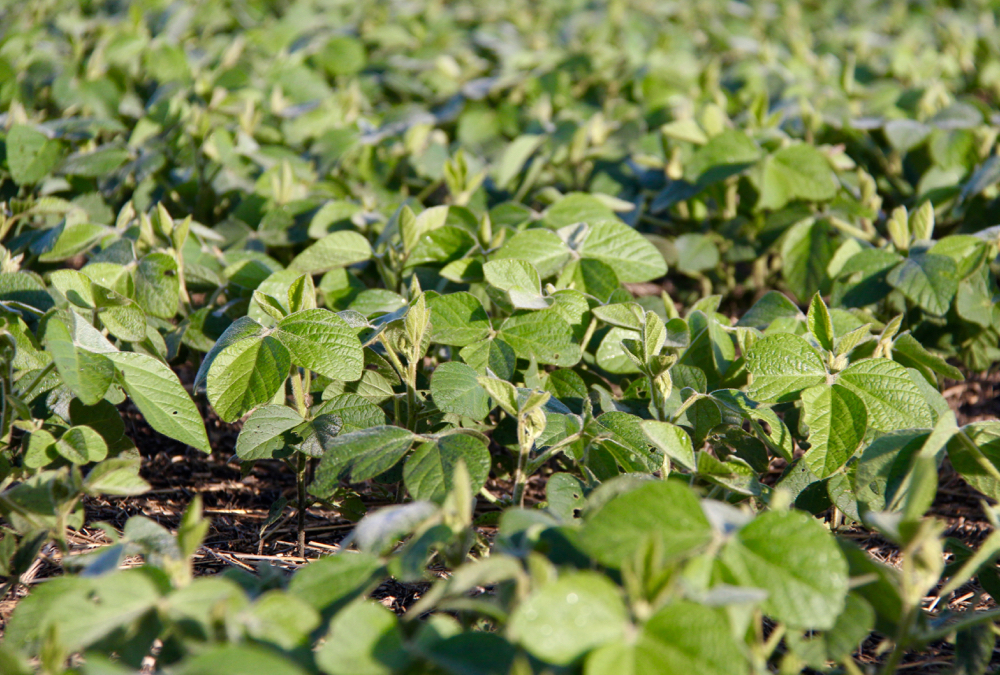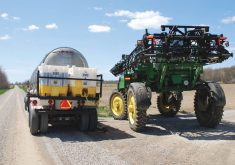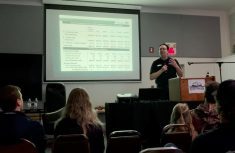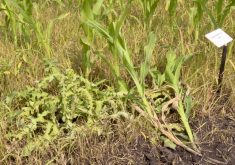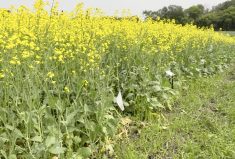This summer will be the 25th anniversary of Manitoba’s Crop Diagnostic School, and the first time since 2019 that the event will be able to be held in person.
The event, organized annually by Manitoba Agriculture and the University of Manitoba, has been keeping agronomists and producers up to date with the latest diagnostic tools and field-scouting trends since 1996.
“Technically, this is our 26th anniversary,” admitted Manitoba Agriculture soil specialist Marla Riekman. “But because of the COVID hiatus, we’re going to call this our 25th anniversary.”
Read Also

Spoken questions are what make it an interview
Recently, I was exchanging emails with the media email account at a government agency, hoping to reach a source for…
Why it matters: Crop Diagnostic School will be returning to the field plots in Carman in early July 2022.
Riekman will be heading up this year’s Crop Diagnostic School.
Pandemic gathering restrictions in 2020 and 2021, forced the event to go online. During the first year of the pandemic, organizers opted for a video-based “pay-for-access” format, with participants accessing pre-recorded videos and presentations. In 2021, in an effort to get some of the in-person vibe back, organizers spread the school over several weeks, using a video conferencing format that allowed participants to more directly engage with each other.
“We’re super excited to be able to come back in person,” Riekman said. “It’s a great thing to be able to do this after a two-year hiatus. We’re really looking forward to being able to interact with everybody again.”
However, the format will not be exactly as it was prior to the pandemic. In previous years, the school would run over a two-week period. This year, the event will be compressed into four days.
“Because we’ve been on hiatus for the last two years, there’s been an opportunity for us to re-evaluate and look at what our options are for the future of the Crop Diagnostic School and, as a result, we decided that we would change a bit of how we have our day scheduled,” Riekman said.
Changes have been made to work out transportation bottlenecks and increase the number of attendees daily, she noted. In the past, a limited number of shuttles, with a limited number of seats, would move attendees to the field locations. This year, field locations are nearer to the building. “They’re very walkable,” Riekman said.
Another change will shift the structure of content. In the past, the school had six sessions a day, one for each of the key diagnostic areas: weeds, diseases, insects and soil. Participants would then rotate through two of the commodities: pulses, grain and oilseeds. This year, there are only four sessions led by experts in the key diagnostic areas, but trainers with expertise in the three commodities will be brought into those sessions to discuss the relationship between the diagnoses and the crops affected. “So it’s a bit of a different way to run the school, but it still (focuses) on the general idea of those four key areas for diagnostics,” Riekman said.
The curriculum for the school, where possible, attempts to emulate current climate and economic conditions. “So, for instance, this year they’ll be talking about blackleg in canola,” said Reikman. “And they’re going to be talking about root rot in peas.”
Both of those diseases are more common in wet years like 2022, while root rot in peas has added significance this year as many producers are looking at increasing pea acres as a result of new market from Roquette’s pea protein-processing plant in Portage la Prairie.
One of the challenges organizers face is that forcing problems to emerge isn’t as easy as it might seem. “Really, it’s a statistical probability of ‘x’ happening,” Riekman said. “So when we’re trying to mess things up in the field, there are absolutely times when the things we do, that should mess it up in theory, might not work out the way that we expect them to.”
That being said, they’ve got pretty good at it over the years. “The unofficial motto at Crop Diagnostic School is that we do things wrong so that you don’t have to,” she joked.
This year’s Crop Diagnostic School will be hosted July 5-8, from 8:30 a.m. to 3 p.m. daily at the University of Manitoba’s Ian N. Morrison Research Farm in Carman, Manitoba. Registration is $175 per person.


